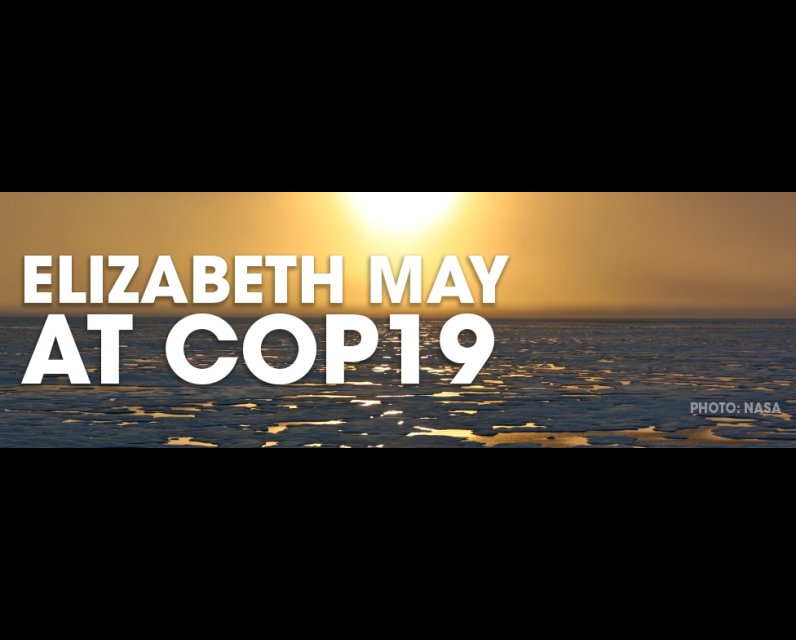Warning message
- Last import of users from Drupal Production environment ran more than 7 days ago. Import users by accessing /admin/config/live-importer/drupal-run
- Last import of nodes from Drupal Production environment ran more than 7 days ago. Import nodes by accessing /admin/config/live-importer/drupal-run
Unpublished Opinions
Elizabeth May is an environmentalist, writer, activist, lawyer, and leader of the Green Party of Canada. Elizabeth became active in the environmental movement in the 1970s. She is a graduate of Dalhousie Law School and was admitted to the Bar in both Nova Scotia and Ontario. She held the position of Associate General Council for the Public Interest Advocacy Centre prior to becoming Senior Policy Advisor to the federal minister of the Environment from 1986 until 1988. Elizabeth became Executive Director of the Sierra Club of Canada in 1989, a position she held until March 2006, when she stepped down to run for leadership of the Green Party of Canada.
Elizabeth is the author of seven books, including her most recent Losing Confidence: Power, Politics and the Crisis in Canadian Democracy. She has served on the boards of numerous organizations, including the International Institute for Sustainable Development and as Vice-Chair of the National Round Table on Environment and Economy and is currently a Commissioner of the Earth Charter International Council. Elizabeth became an Officer of the Order of Canada in 2005. In November, 2010, Newsweek magazine named her one of the worlds most influential women. In the 2011 Election, Elizabeth made history by being the first Green Party candidate to be elected to the House of Commons. She is the Member of Parliament for the riding of Saanich-Gulf Islands. In 2012, Elizabeth won Macleans Parliamentarian of the Year award, voted on by her fellow MPs.
Will Philippines spur COP action?

On November 11th there was more than one set of sombre events. While those nations that observe the Armistice of 1918 gathered at cenotaphs to honour those lost in war, countries from around the world met in Warsaw, Poland to begin the two week annual climate conference.
This time, the nineteenth such ‘conference of the parties’ (COP) under the 1992 landmark UN Framework Convention on Climate Change, the agenda lacks ambition. The dispirited process makes halting progress. There is a second phase of Kyoto, our only legally binding mechanism, but the largest polluters—China and the United States—have stayed out of it. Canada’s rejection of Kyoto was arguably critical in opening the space for worse performance by larger polluters.
Meanwhile, the host nation, Poland, is the worst in that region, pressing the European Union, which has met its first phase Kyoto targets, to allow Poland to continue relying on coal.
I was the only Canadian Opposition Member of Parliament attending COP 19 in Warsaw to observe new Minister of Environment Leona Aglukkaq’s debut as lead climate minister for Canada.
Expectations for Warsaw’s COP19 were limited. In the days leading up to the November 11 opening, it was being described as a ‘private sector COP’, engaging large multinationals in the developing carbon trading schemes.
Other pieces were on the agenda, particularly the Global Climate Fund, based on the Copenhagen pledge of $100 billion/year by 2020 for developing countries, but no-one was expecting any passion or urgency.
Everyone knew that the disaster that was the Copenhagen climate negotiation in 2009 has left the world with a new time-table—a deal by 2015 to be legally in force by 2020. The 2015 COP will be in Paris and no-one expects much until then, although Ban Ki-Moon, UN Secretary General, did add some sense of urgency in the wake of the recent strong warnings from the Fifth Assessment report from the IPCC. Ban Ki-Moon called for a Summit of leaders of governments in fall 2014 in New York.
Philippines Typhoon
But then on Friday, November 8, the Philippines suffered one of the worst, if not the worst, storm ever to hit the region. With ocean temperatures elevated by the climate crisis, Typhoon Haiyan generated winds in excess of 300 km/hr.
We used to speak of a future threat to lives from global warming. But already this is not the first storm, based on significant evidence, to be linked with human-caused climate change. It is one of the single biggest extreme weather events with a growing and unbearable death toll.
The lead negotiator from the Philippines began the Warsaw meeting with a passionate plea for action, ‘We cannot sit and stay helpless staring at this international climate stalemate. It is now time to take action. We need an emergency climate pathway.’
Yeb Sano, head of the Philippine delegation to COP19, wrote in the British Guardian, ‘What my country is going through as a result of this extreme climate event is madness. The climate crisis is madness. We can stop this madness. Right here in Warsaw. Typhoons such as Haiyan and its impacts represent a sobering reminder to the international community that we cannot afford to procrastinate on climate action.
‘Science tells us that simply, climate change will mean more intense tropical storms. As the Earth warms up, that would include the oceans. The energy that is stored in the waters off the Philippines will increase the intensity of typhoons and the trend we now see is that more destructive storms will be the new norm.
‘Developed country emissions reductions targets are dangerously low and must be raised immediately, but even if they were in line with the demand of reducing 40-50% below 1990 levels, we would still have locked-in climate change and would still need to address the issue of loss and damage.’
And with that, Yeb Sano announced he would commence fasting for climate action. No delegate has ever made a more desperate plea. Against all the diminished expectations set by the lethargic process, the death toll in the Philippines might just wake the fossil-addicted economic giants and spur them to action.



Comments
Be the first to comment